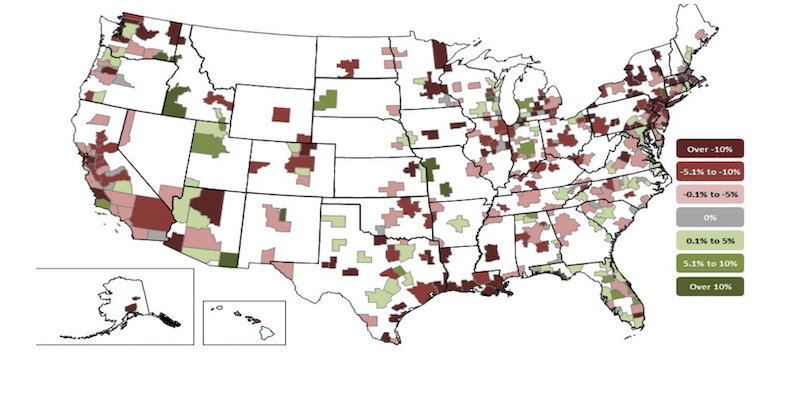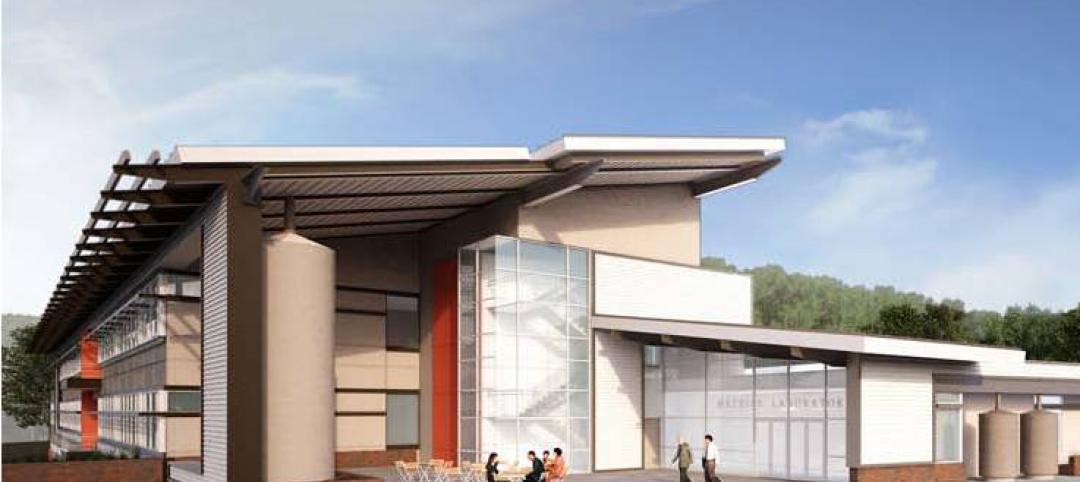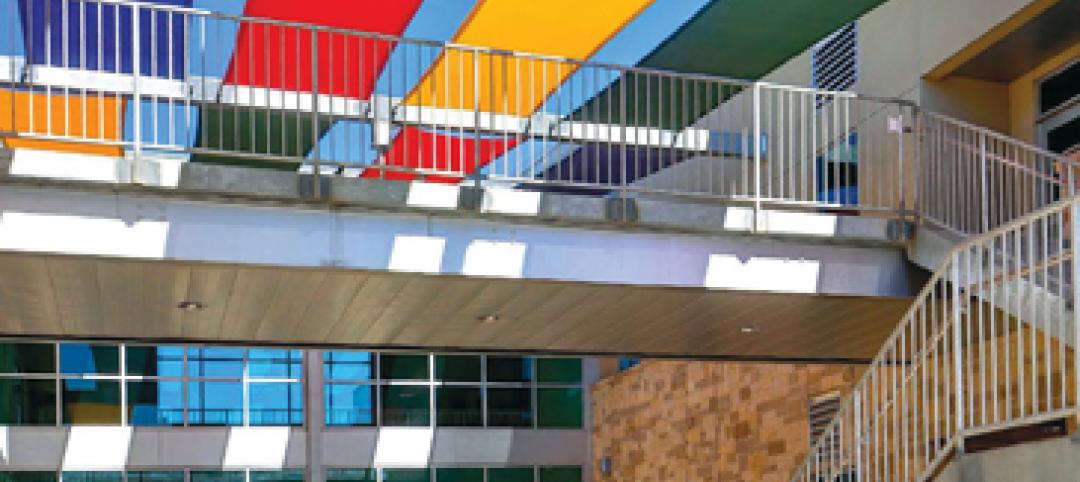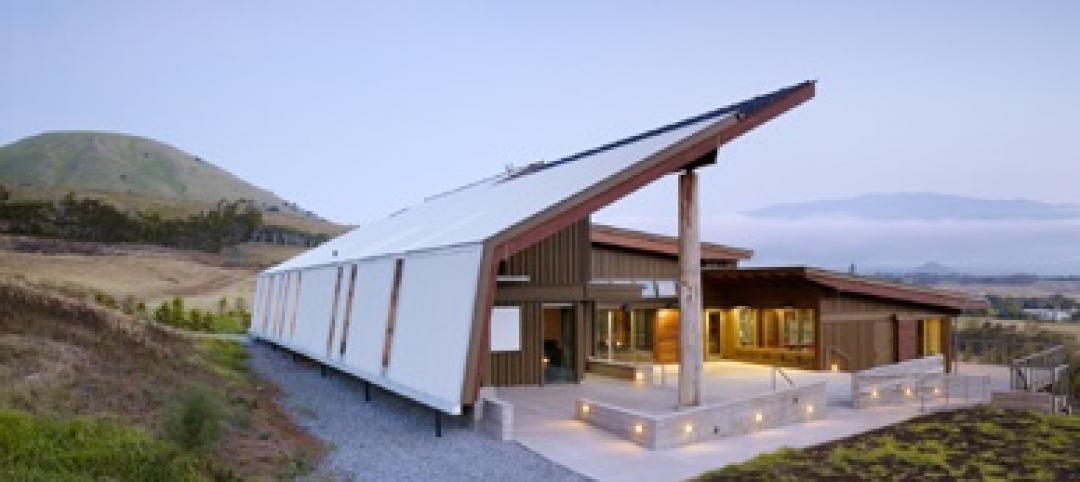Construction officials outlined a series of steps public officials and the construction industry should take to address the impacts of the built environment on climate change. The new initiative from the Associated General Contractors of America is designed to lessen the carbon footprint of the built environment while also making the process of building projects even more efficient.
“The construction industry is the delivery vehicle for building a greener, more climate friendly future,” said Stephen E. Sandherr, the association’s chief executive officer. “Finding a way to ensure that what our members build is more efficient will have a significant impact on climate change.”
Sandherr noted that construction activity accounts for less than two percent of greenhouse gas emissions in the United States. Meanwhile, the built environment accounts for approximately one-third of greenhouse gas emissions. As a result, while the new initiative includes steps construction firms can take to operate more efficiently, the bulk of the effort is focused on pushing for public and private project owners to build more efficient projects and discovering how we can also support them in that process.
Among the measures outlined in the new initiative include calling for a national strategy to invest in physical infrastructure that will make communities more resilient. The association is also calling for an increase in investments and funding opportunities for public and private infrastructure to build more efficient highways, water plants and other facilities.
Public officials should also invest in modernizing federal buildings to make them more efficient. The association is also calling for expanding tax incentives and deductions to encourage the private sector to build more efficient buildings. And the group is calling for expedited permitting for projects that improve efficiency and reduce greenhouse gas emissions.
Association officials also identified steps contractors can take to operate more efficiently. This includes encouraging equipment manufacturers to improve the fuel efficiency of their equipment, helping firms learn how to reduce equipment idling and sharing information about industry innovations like solar powered job site trailers and energy efficient job site lighting.
The new initiative was crafted by a special climate change task force for the association created earlier this year. Representatives from 18 different member firms participated in the task force meetings and helped craft the recommendations outlined in the initiative. “You can’t wish for a greener future, you have to build it,” said Les Snyder, the president of Shikun & Binui America in Pittsburgh and the chair of the association’s climate change task force.
Click here to view details of the association’s new climate change initiative.
Related Stories
| May 25, 2011
Smithsonian building $45 million green lab
Thanks to a $45 million federal appropriation to the Smithsonian Institution, the Smithsonian Environmental Research Center in Edgewater, Md., has broken ground on what is expected to be one of the most energy-efficient laboratories in the country. The 69,000-sf lab is targeting LEED Gold and is expected to use 37% less energy and emit 37% less carbon dioxide than a similar building.
| May 20, 2011
Chicago leads the nation in LEED-certified square footage
The U.S. Green Building Council reports that Chicago has the highest number of square feet of LEED-certified green building projects nationally with 71 million square feet.
| May 18, 2011
Eco-friendly San Antonio school combines history and sustainability
The 113,000-sf Rolling Meadows Elementary School in San Antonio is the Judson Independent School District’s first sustainable facility, with green features such as vented roofs for rainwater collection and regionally sourced materials.
| May 16, 2011
USGBC and AIA unveil report for greening K-12 schools
The U.S. Green Building Council and the American Institute of Architects unveiled "Local Leaders in Sustainability: A Special Report from Sundance," which outlines a five-point national action plan that mayors and local leaders can use as a framework to develop and implement green schools initiatives.
| May 16, 2011
Virtual tour: See U.S. Green Building Council’s new LEED Platinum HQ—and earn CE credits
A virtual tour of the U.S. Green Building Council's LEED Platinum HQ is available. The tour features embedded videos, audio podcasts, and information on building materials and products used throughout the space. By taking the virtual tour, professionals can earn GBCI Continuing Education hours for the LEED AP with specialty and LEED Green Associate credentials.
| May 16, 2011
Seattle unveils program to boost building efficiency
Seattle launched a new program that will help commercial property owners and managers assess and improve building energy efficiency. Under the program, all commercial and multifamily buildings larger than 10,000 sq. ft. will be measured for their energy performance using the EPA’s ENERGY STAR Portfolio Manager.
| May 10, 2011
Cascadia Green Building Council report urges net-zero water systems for multifamily and commercial buildings
A new report from the Cascadia Green Building Council offers best management practices for designing safe, efficient, and effective net-zero water systems for the multifamily, commercial, single-family, and neighborhood market segments.
| May 10, 2011
Greenest buildings: K-12 and commercial markets
Can you name the nation’s greenest K-12 school? How about the greenest commercial building? If you drew a blank, don’t worry because our friends at EarthTechling have all the information on those two projects. Check out the Hawai’i Preparatory Academy’s Energy Lab on the Big Island and Cascadia Green Building Council’s new Seattle headquarters.
| May 10, 2011
Solar installations on multifamily rooftops aid social change
The Los Angeles Business Council's study on the feasibility of installing solar panels on the city’s multifamily buildings shows there's tremendous rooftop capacity, and that a significant portion of that rooftop capacity comes from buildings in economically depressed neighborhoods. Solar installations could therefore be used to create jobs, lower utility costs, and improve conditions for residents in these neighborhood.
| May 3, 2011
More jurisdictions adopting International Green Construction Code
More jurisdictions are utilizing the new International Green Construction Code (IGCC) as a tool to address sustainable construction for new and existing buildings. Fort Collins, Colo., and Kayenta Township, Ariz., are the most recent in a series of local and state governments that have adopted the IGCC,











